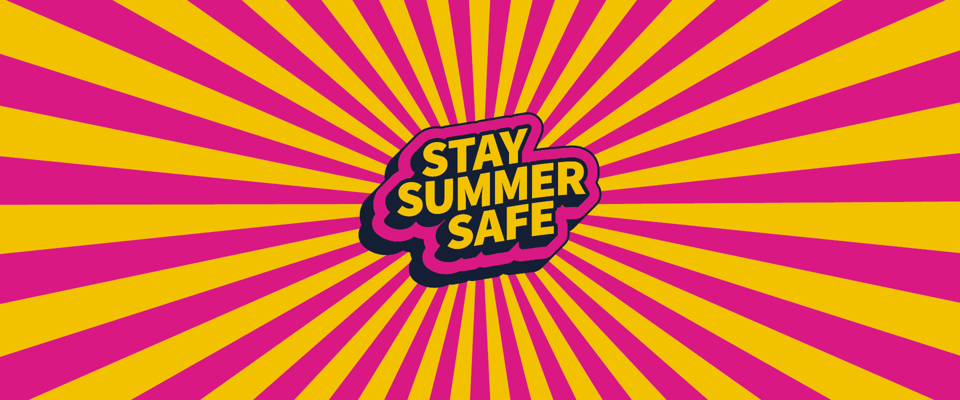
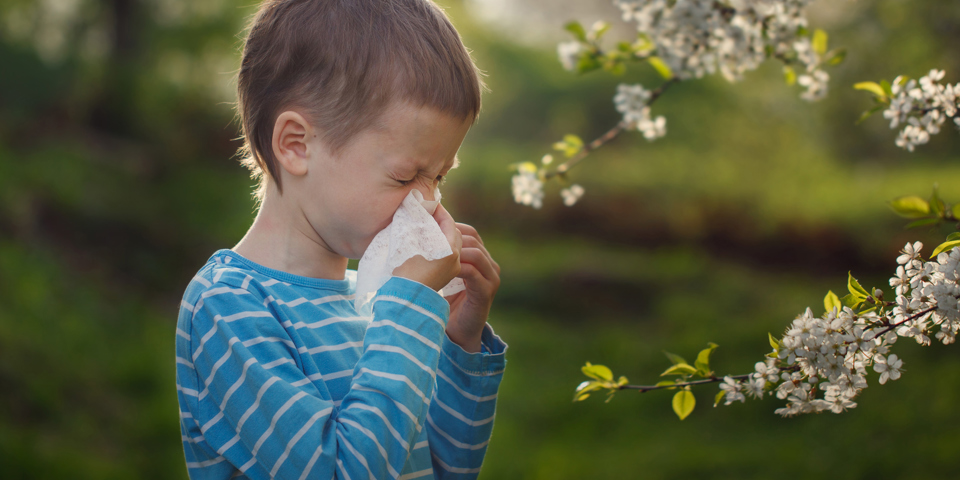
Keep on top of allergies
Keep on top of allergy or hay fever medications. This summer can be particularly challenging for people with hay fever. Antihistamines and nasal sprays can make a big difference.

Drink plenty of water
Drink plenty of water and avoid overdoing sugary, caffeinated, and alcoholic drinks. Avoid strenuous activity during the hottest part of the day, and wear loose, breathable clothing.
Hot weather can lead to heatstroke, heat exhaustion and dehydration, especially for vulnerable people like young children or older adults.
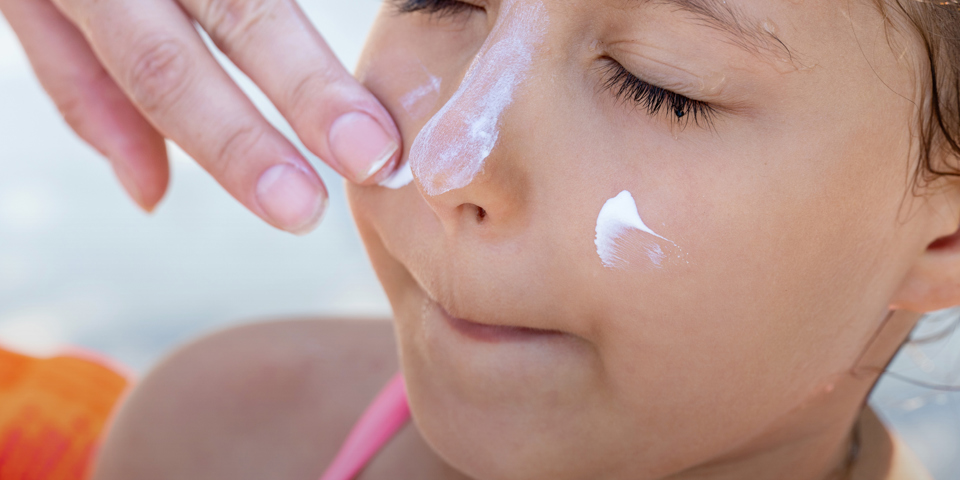
Regularly apply sunscreen
Use a sunscreen with an SPF of 30+ and re-apply every two hours to avoid painful sunburn.
Top tips
- spend time in the shade between 11am and 3pm
- never burn
- cover up with suitable clothing and sunglasses
- take extra care with children and elderly people, those with pale, white or light brown skin and those who have freckles or red or fair hair

Car temperatures
Never leave babies, children or pets alone in a parked car during hot weather.
Remember that even on cool days, strong sunshine can make car interiors very hot.
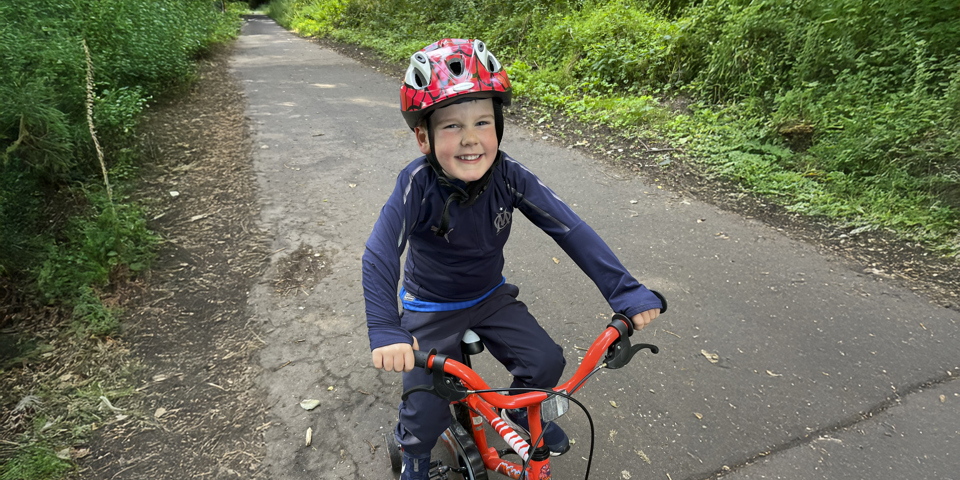
Wear safety gear during activities
Wear appropriate attire and safety gear during activities like cycling, hiking. Always check the weather forecast before setting out for the hills as conditions can change very quickly in Scotland.
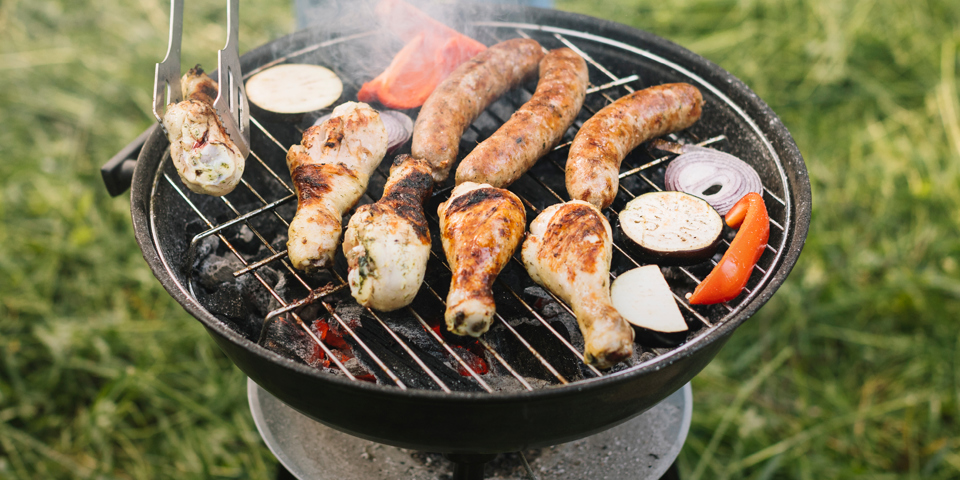
BBQs, firepits and campfires
Use caution when dealing with flammable liquids, open flames, campfires and firepits.
If you do get a minor burn or injury, start with self care or seek help from your local pharmacy or if you think it is more serious, call 111.

Float to live
Would you know what to do if you got into difficulty in the water? The answer is to float.
Float by following these five simple steps
- Tilt your head back
- Relax
- Move your hands and legs
- It's ok if your legs sink
- Practice floating
Floating – it could save your life.
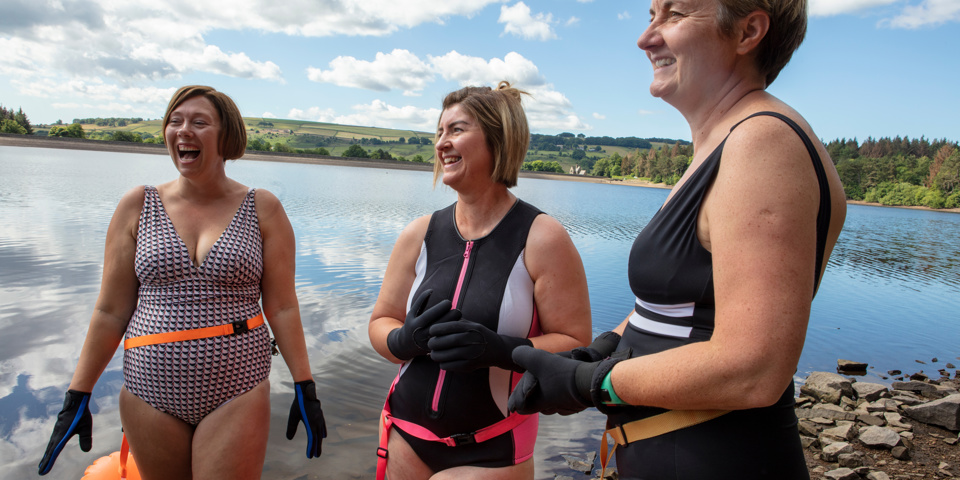
Outdoor swimming needs careful planning
Swimming is a great way to cool down in hot weather. But make sure you do it safely. It's best to go to a properly supervised site with lifeguards, like a beach, lido or swimming pool.
Find helpful tips and advice using the link below.

Waterborne illness
People and animals can be affected because of contact with contaminated water sources. Look out for blooms of potentially hazardous blue-green algae and avoid swimming in stagnant water and drinking untreated water from natural sources.
While less common, there is also a slight risk of contracting illnesses like Legionnaires' disease or Giardia from contaminated water sources.

Food safety
Cook food thoroughly and avoid leaving it in warm temperatures where bacteria can grow.
See food safety link below.
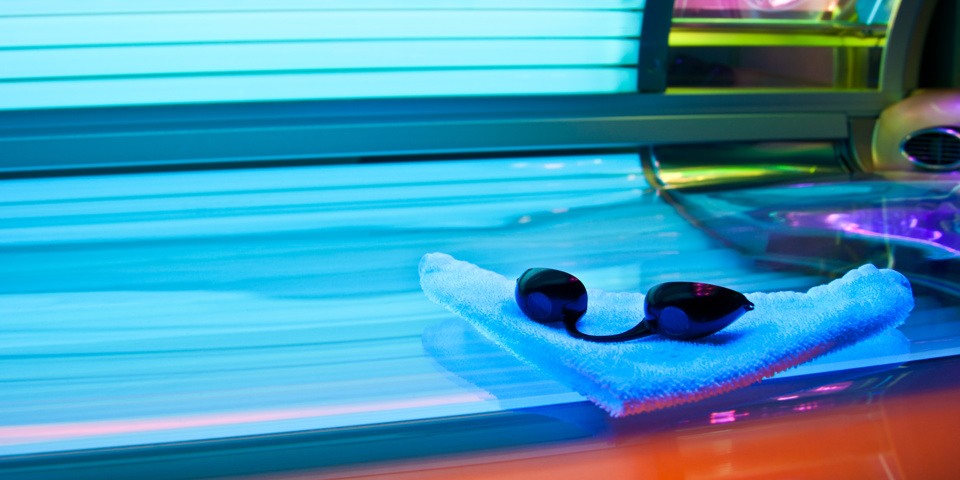
Using sunbeds
The British Association of Dermatologists advises that people should not use sunbeds or sunlamps. There are safer ways to get a 'healthy glow' such as using a tinted moisturising lotion. Health risks linked to sunbeds and other UV tanning equipment include:
- skin cancer
- premature skin ageing
- sunburnt skin
- eye irritation
It's illegal for people under the age of 18 to use sunbeds, including in tanning salons, beauty salons, leisure centres, gyms and hotels. See link below from Cancer UK.

Travel vaccination
If you’re travelling overseas, some countries need you to be vaccinated before you visit. NHS Fife provides free vaccines against some of the diseases that pose the greatest risk to public health if they were brought back into the country.
Find out what you may need, visit the Fit4travel.

Be aware of wildfire risk
Visit Scotland has already had to issue wildfire advice this year in Scotland. The Scottish Fire and Rescue Service (SFRS) advises people to always follow the Scottish Outdoor Access Code and has a range of safety advice for wildfire prevention on its website.
Ready Scotland has lots of best practice advice on how to avoid wildfires and what to do if you spot one.

Mental health
Longer days can disrupt sleep patterns, and the pressure to enjoy "perfect" summer weather can contribute to anxiety or depression. Maintain regular sleep routines, find healthy ways to manage stress, and don't be afraid to seek help if you're struggling.

Hajj pilgrimage
Hajj is an annual Islamic religious pilgrimage to Makkah (Mecca) in Saudi Arabia. The dates for Hajj 1446H/2025 are expected to be 4–9 June 2025.
For health information on the required vaccinations needed for entry visas for travel read more on our dedicated Hajj pilgrimage page.
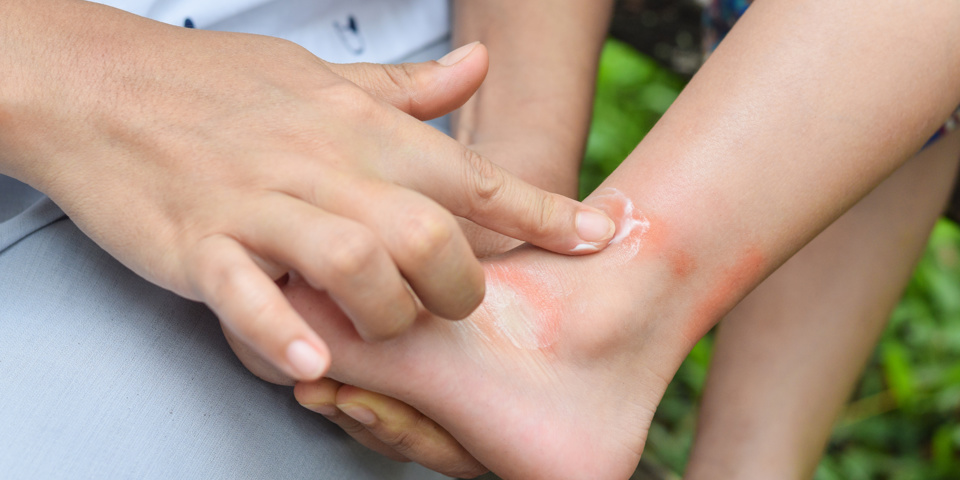
Insect bites and stings
Bites and stings are common and usually only cause minor irritation though some can be painful and may trigger an allergic reaction. Watch out on beaches for wildlife such as jellyfish which also sting.
Symptoms of bites and stings which usually continue for a few days after the bite or sting:
- pain where you were stung or bitten
- a small, swollen lump on the skin
- redness
- itching
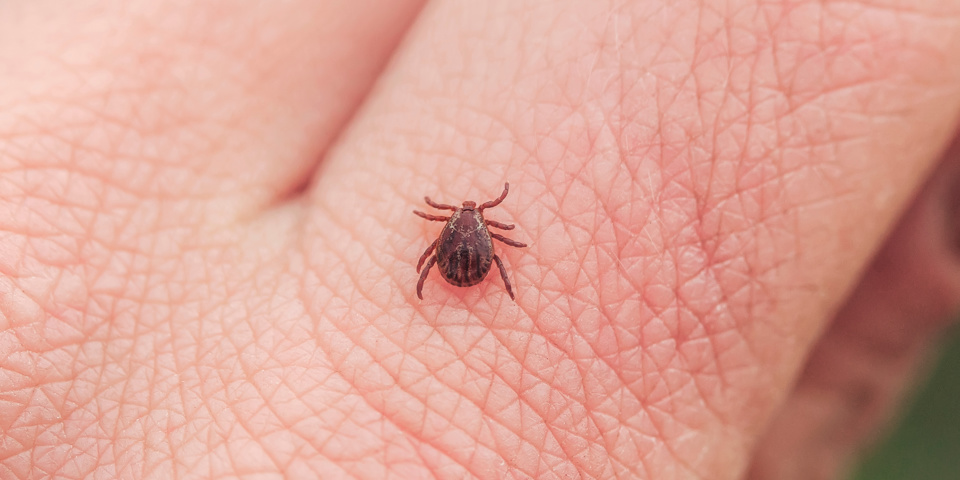
Be tick aware when enjoying the great outdoors
Lyme disease is a bacterial infection that can be spread to humans by infected ticks. It is usually mild, but can be serious if not treated early, so it’s important to know the dangers and act quickly if bitten.
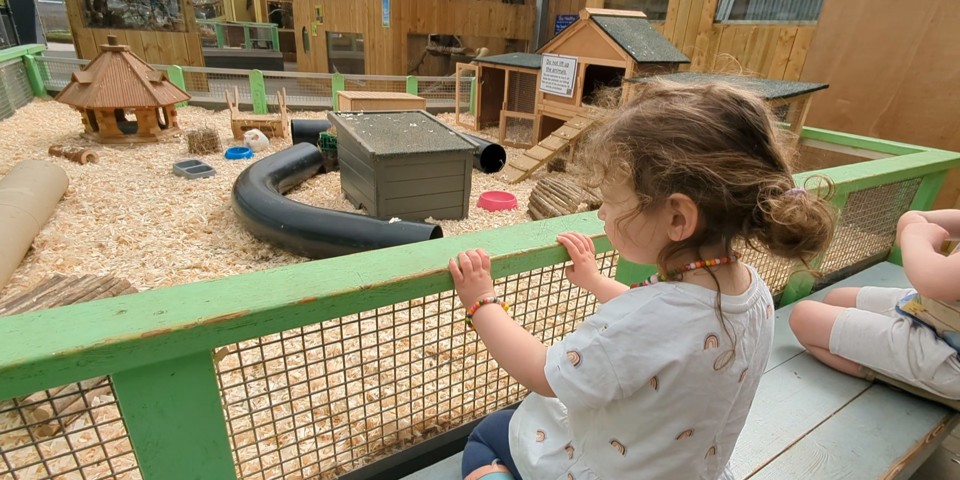
Petting zoos and days out
Regular handwashing with hot water and soap helps keep germs and viruses at bay, reducing your chances of picking up illnesses. If you’re on a day out to a farm or a zoo, avoid the potential for contracting a stomach bug by not eating near the animals or putting your face too close to them.
Useful links
Hot Weather Advice – Ready Scotland
Guidance on staying safe and healthy during periods of extreme heat in Scotland.
NHS Inform
Trusted health information and advice for people living in or visiting Scotland.
Right Care, Right Place
Helps you choose the most appropriate healthcare service for your needs.
Sexual Health
Information and access to sexual health clinics and support across Fife.
NHS 24
24/7 health advice and support service for urgent but non-emergency medical concerns.
Scottish Outdoor Access Code
Learn your rights and responsibilities when enjoying Scotland’s outdoors
Access Therapies Fife
Mental health support and self-help resources for people in Fife.
SAMH – Scottish Association for Mental Health
Mental health support, resources, and advocacy across Scotland.
Accessible formats
If you require this information in a community language or alternative format such as Braille, audio, large print, BSL, or Easy Read, please contact the Equality and Human Rights Team at: email: fife.EqualityandHumanRights@nhs.scot or phone 01592 729130. For people with a hearing or verbal impairment you can also contact the team through the NHS Fife SMS text service number on 07805800005.